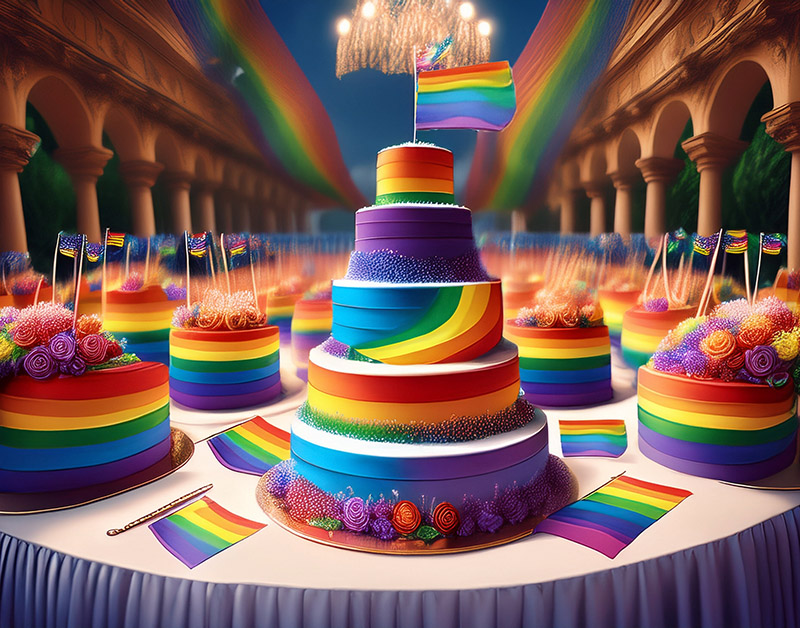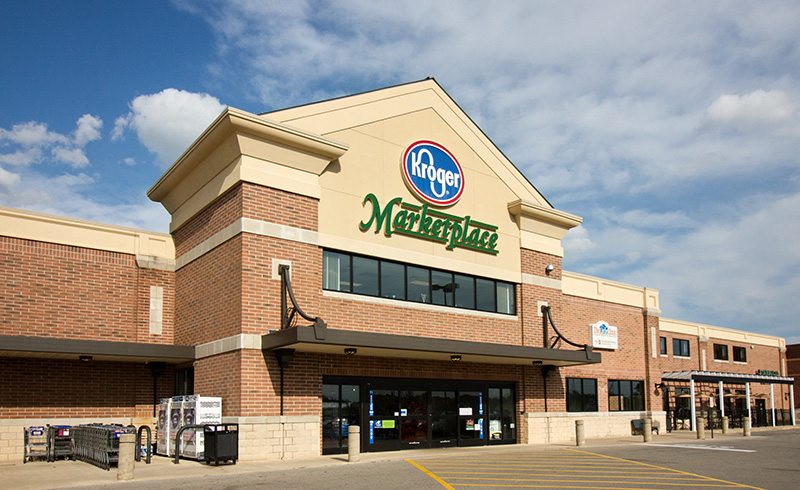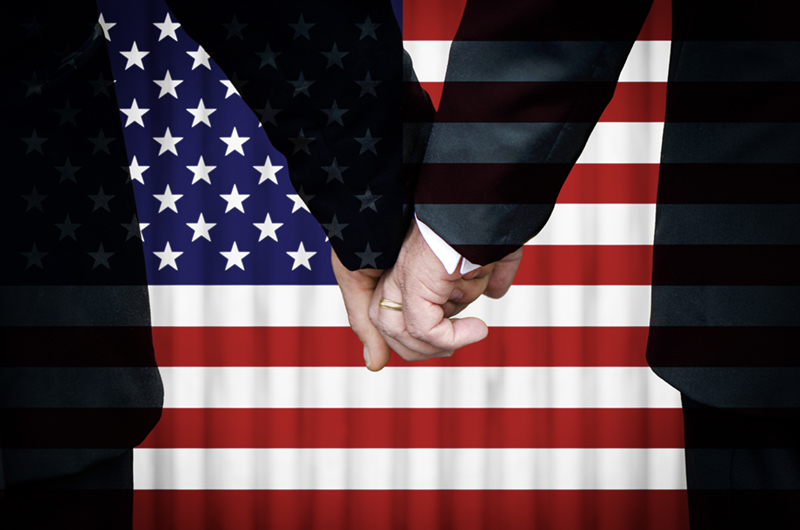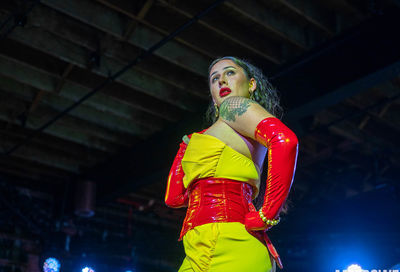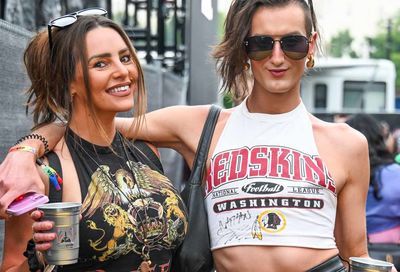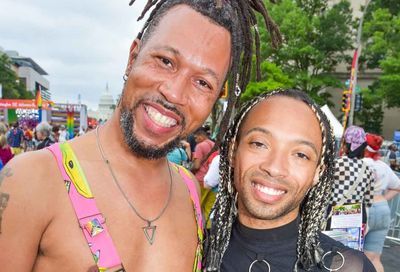Fueling Maryland's Marriage Fight
Cash, outreach and rallies for Question 6 in high gear
With less than three weeks before Election Day, Nov. 6, both sides in the fight over Question 6, the referendum to decide whether Maryland’s recently passed marriage-equality law will go into effect in January 2013, are ramping up efforts.
When it comes to cash, the Human Rights Campaign (HRC), the nation’s largest LGBT civil rights organization, announced Oct. 15 that it would commit an additional $300,000 to support Question 6. Half of that $300,000 will go to the NAACP (National Association for the Advancement of Colored People) Maryland Marriage PAC, and half will go to Marylanders for Marriage Equality (MME), the coalition of labor, religious and grassroots community groups seeking to uphold Maryland’s marriage-equality law.
”It is clear 2012 is the year for marriage equality in Maryland,” HRC President Chad Griffin said in an Oct. 15 statement. ”Our movement is about loving and committed families who deserve nothing less than full equality under the law. HRC is proud of our many volunteers and donors who have raised and donated additional resources to fuel this fight.”
HRC’s nationwide investments during the 2012 election cycle total $7.3 million in legislative and electoral efforts. HRC has also made in-kind contributions of staffers and research to achieve marriage equality.
”Our adversaries have bragged that marriage has never won at the ballot box,” Griffin said. ”This November, we will take that talking point away once and for all. In 2012, fair-minded Americans – and particularly residents of Maryland – will support their LGBT friends, family members and coworkers.”
Meanwhile, MME announced it has raised $3.2 million from more than 9,000 donors. The campaign finance report for the anti-Question 6 Maryland Marriage Alliance (MMA) showed the group had raised $838,000 from 300 donors.
”We’ll let the massive gap between our number of individual donors and theirs speak for itself,” said Josh Levin, MME campaign manager, in a prepared statement. ”Our opponents raised almost 80 percent of their funds from two secretive organizations that don’t disclose their donors, yet we’ve still raised more from Maryland residents alone than they have overall. The campaign for marriage equality is powered by Marylanders who are giving their time and dollars to protect fairness and equality under the law.”
Of the $838,000 raised by the Maryland Marriage Alliance, $400,000 came from the anti-gay National Organization for Marriage (NOM). Another $250,000 came from the Knights of Columbus, a Catholic organization.
MME also noted that the Maryland Catholic Conference donated about $11,500 in in-kind contributions to the MMA.
Marriage opponents have tried to claim that Marylanders for Marriage Equality has relied on donations from out-of-state activists, with MMA President Derek McCoy claiming the organization receives ”millions” from ”movie stars.”
”The disclosure highlights a larger point: our opponents are misinforming – and sometimes outright lying to – voters,” MME’s Levin said.
Following marriage opponents’ entry into the relatively expensive D.C. media market, MME announced Oct. 15 the release of its own new television ad featuring NAACP Chairman Emeritus Julian Bond, now airing in the Washington media market. In the ad, Bond, a prominent civil rights figure, addresses the camera, telling viewers:
”I know a little something about fighting for what’s right and just. Maryland’s gay and lesbian families share the same values, and they should share in the right to marry. I believe people of faith understand that this isn’t about any one religious belief; it’s about protecting the civil right to make a lifelong commitment to the person you love. Join me in supporting Question 6. It’s the right thing to do.”
The Bond television ad follows the Oct. 10 release of radio ads featuring Bond airing in the D.C. suburbs, and the release of two separate commercials in the Baltimore area featuring two African-American Baptist ministers, Rev. Donte Hickman and Delman Coates, endorsing Question 6 as a matter of fairness that also underscores religious freedom.
Such commercials are a form of ”microtargeting” specific groups, in this case African-Americans, to shore up support against expected attacks from the Maryland Marriage Alliance and its backers, including NOM, whose internal memos have talked of ”driv[ing] a wedge” between African-Americans and the LGBT community as part of a strategy to defeat marriage equality at the ballot box.
Outreach to the African-American community is considered crucial in Maryland where about a quarter of the Nov. 6 votes are expected to be cast by African-Americans. Recent polling shows African-Americans opposed to marriage equality, but by a shrinking margin.
Enhancing the messaging directed at African-American voters, the NAACP held an Oct. 15 press conference in Baltimore to reiterate the organization’s support for marriage equality and to formally endorse Question 6. In May, when the NAACP board of directors passed a resolution endorsing marriage equality, NAACP President Benjamin Todd Jealous said he hoped that support would be a ”game-changer” in convincing African-Americans to support marriage equality.
In another attempt to reach out to African-American voters, as well as student voters, Question 6 supporters held a rally Tuesday evening, Oct. 16, at Bowie State University co-sponsored by the Bowie State Student Government Association, the Bowie State LGBTQIA Resource Center and the Maryland Black Family Alliance, a pro-equality alliance of straight, black allies.
The Bowie State rally follows a similar Oct. 12 event at the University of Maryland, College Park, where Sen. Ben Cardin (D-Md.), Del. Heather Mizeur (D-Montgomery Co.), Del. Luke Clippinger (D-Baltimore City) and state Sen. Rich Madaleno (D-Montgomery Co.) spoke to an audience of about a hundred young people about the importance of voting for Question 6.
”It might sound like the most clichéd thing you can anticipate us saying … ‘Your generation has the opportunity to make the biggest difference,”’ Mizeur joked in a deadpan voice. Switching to a serious tone, she continued, ”Let me tell you something: In this particular case, this is no joking matter. We wouldn’t have a marriage-equality law to be defending on the ballot in November without your generation, because I can tell you that I had at least five members of the General Assembly – and we only won by two – who said they changed their mind on this because their high school- and college-aged kids shamed them into doing the right thing.”
After the rally, Samantha Zwerling, a junior and University of Maryland’s (UMD) student body president, said she thought students were ”energized” to vote for Question 6 and other ballot measures such as the Maryland version of the DREAM Act, Question 4. Zwerling added that through the Terps Vote Coalition, made up of campus departments and student groups, the university has become the first in the country to allow students to vote using their student ID cards by entering their student ID numbers on an online portal linked to the registration office, through which they can register at their campus addresses. Then, in November, they will be able to vote on campus.
A Public Policy Polling poll in May found Maryland voters ages 18 to 29 favored marriage equality by a 58-39 margin.
After the College Park rally, Madaleno spoke with Metro Weekly about Question 6’s chances.
”We still have challenges before Election Day,” Madaleno said. ”However, this campaign is going better than I could ever have hoped. We’re leading in the polls, raising money, we’ve got the president and the NAACP supporting it, and we’ve got the grassroots activists behind us.”
Support Metro Weekly’s Journalism
These are challenging times for news organizations. And yet it’s crucial we stay active and provide vital resources and information to both our local readers and the world. So won’t you please take a moment and consider supporting Metro Weekly with a membership? For as little as $5 a month, you can help ensure Metro Weekly magazine and MetroWeekly.com remain free, viable resources as we provide the best, most diverse, culturally-resonant LGBTQ coverage in both the D.C. region and around the world. Memberships come with exclusive perks and discounts, your own personal digital delivery of each week’s magazine (and an archive), access to our Member's Lounge when it launches this fall, and exclusive members-only items like Metro Weekly Membership Mugs and Tote Bags! Check out all our membership levels here and please join us today!








